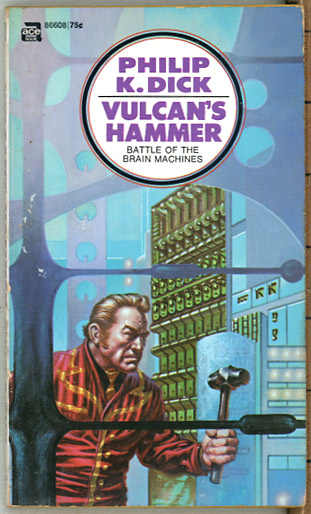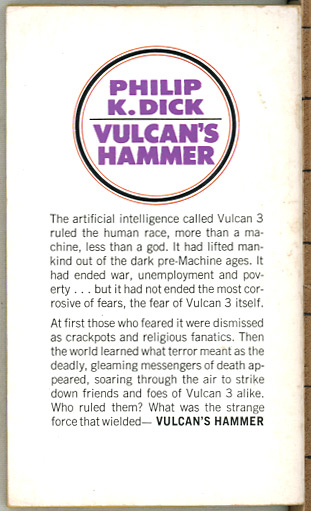
author:
title:
Dick, Philip K.
VULCAN'S HAMMER
book-date: 1960
edn-date:
printing:
format:
cvr art:
cvr price:
GRADING:
1972
2nd
Paperback
Kelly Freas
.75
VG+
Extra stamp on top page-block.
Vulcan's Hammer - is expanded from an appearance in Future SF #29 (1956.)
The artificial intelligence called Vulcan 3 (as head of Unity, the perfect world government) ruled the human race: more than a machine, less than a god. It had ended war, unemployment and poverty… but not the most corrosive of fears, the fear of Vulcan 3 itself. At first those who feared it were dismissed as crackpots and religious fanatics. Then the world learned what terror meant as the deadly, gleaming messengers of death appeared, soaring through the air to strike down friends and foes of Vulcan 3 alike. Who ruled them? What force weilded VULCAN'S HAMMER?
